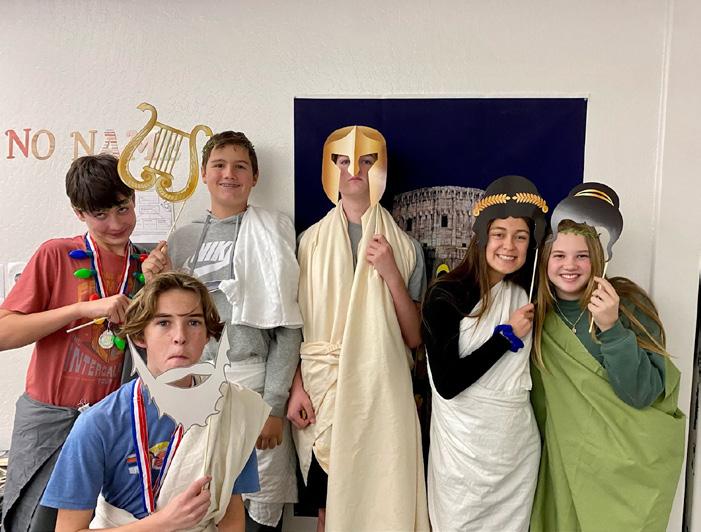
1 minute read
Why are we learning a “dead” language?
By Emily Means, Contra Costa Christian School Latin and English Teacher
Iwas asked this very question by one of my eighth graders on the first day of Latin class. Honestly, I had to give this student credit for even knowing what Latin was. Earlier that day, I overheard a conversation between students looking at their schedules and discussing whether they would be learning ‘Pig Latin’ or ‘Latin American Spanish.’ And truthfully, these are fair questions! After all, according to a survey conducted by the American Classical League in 2016, only about ten percent of high schools in the United States offer Latin courses. In recent years, however, Latin has been making a comeback, which leaves many with the question: “If Latin is considered ‘dead,’ why study it?”
I see many benefits to learning Latin. As an English teacher primarily, I love connecting Latin to the concepts taught in my English classes. More than half of all English words have Latin roots, and so by learning Latin words, my students’ English vocabulary grows in turn. In Latin, we learn about conjugating verbs and grammatical gender and structures. With these concepts in hand, my students are equipped with some of the basic building blocks to learning other languages.
Though Latin may be considered “dead,” it didn’t die so much as evolve into Spanish, Italian, French, Portuguese, and other lesser spoken Romance languages. At Contra Costa Christian Schools, Latin is the first foreign language our students are exposed to, setting our students up for success when learning other languages down the road. I love seeing the wheels turn in students’ minds as they make connections to other languages, like Spanish, while learning Latin words, such as ‘gratias,’ meaning ‘thank you.’
Not only do my Latin students make connections to other foreign languages, but the Latin study also connects to their history classes. By eighth grade, our students have studied ancient Rome in multiple grades, so when we dive into translating Latin passages about the Trojan War, for example, the students are already familiar with the topic.

So, while Latin may be a “dead” language, it is very much alive in our modern-day world.











